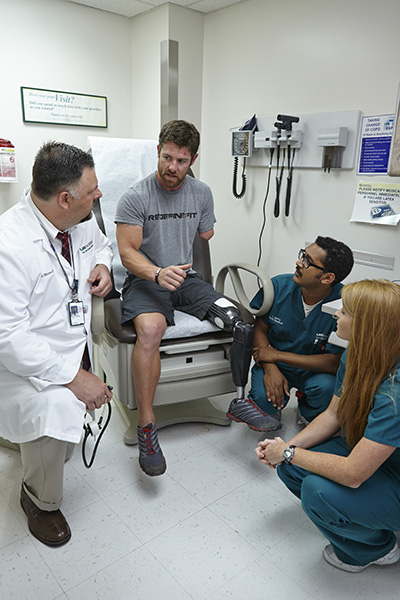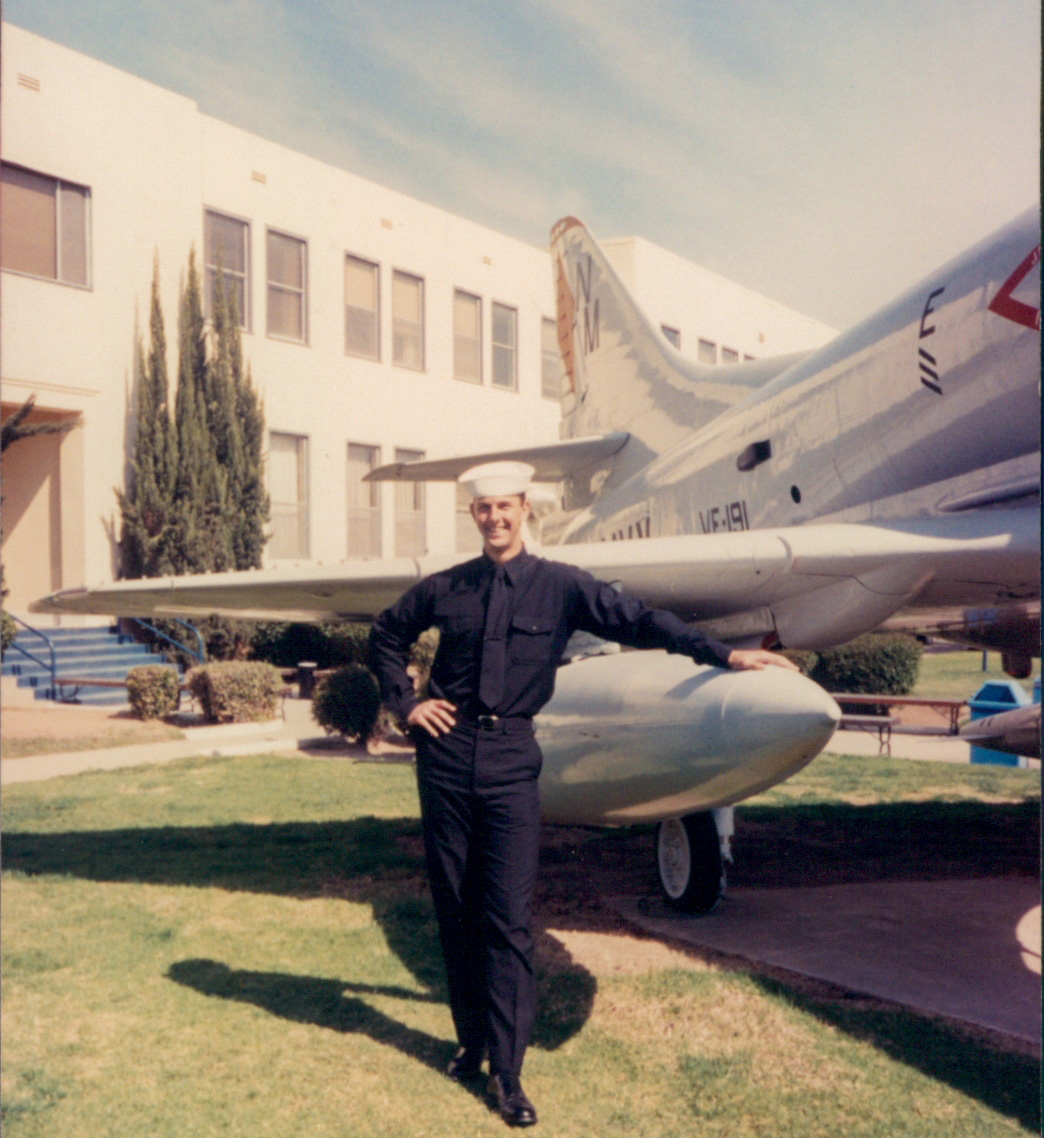The University of Alabama at Birmingham (UAB) School of Nursing trains compassionate, highly educated nurses to meet the health care needs of the nation’s Veterans and their families through the VA Academic Nursing Partnership, a formal partnership with the Veterans’ health care community and the U.S. Department of Veterans Affairs.
That partnership has been expanded for the third time to now include a Post-Baccalaureate Nurse Residency Program.
Designated one of 15 original VA Nursing Academy undergraduate education sites in 2009, the School and the Birmingham VA Medical Center (BVAMC) have successfully worked together for the past eight years through their academic partnership that today is the only one nationwide made up of all four prongs available through the VA Academic Nursing Partnership — an undergraduate component (VANAP), a graduate component (VANAP-GE), a primary mental health nurse practitioner (VANAP-PMHNP) residency and now the post-baccalaureate nurse residency.
With the addition of the post-baccalaureate residency — one of only 17 in the country and designed to smooth and increase the transition of entry level nurses in the VA system to competent professionals providing safe, quality health care — the School and the BVAMC are now even better positioned to prepare the next generation of nurses to care for America’s Veterans.
“Our Veterans have unique health issues, and this is just one more way we can provide the most highly trained nurses possible at the bedside and in communities to care for them and their families,” said Assistant Professor Randy Moore, DNP, RN, who served as VANAP-Undergraduate co-program director from 2010 to 2017 and is now program director of the new post-baccalaureate nurse residency. “There has already been a tremendous amount of collaboration between the UAB School of Nursing and the BVAMC, and adding this fourth component to our VANAP initiatives strengthens the preparation of nursing graduates and their transition to care for Veterans with complex health conditions.
“This innovative model of nursing education is providing the building blocks for the future VA nursing workforce, and we are honored to be a part of that effort.”
Veterans and their families have long held a special place in the hearts of those in the UAB School of Nursing. Moore, a retired U.S. Navy lieutenant commander, and 11 other faculty and staff who are retired Veterans or currently serving in active duty reserve roles are a source of great pride, as are the other faculty and staff who count Veterans among their immediate families.
The School is also proud that approximately 18 percent of the undergraduate nursing students enrolled for the Fall 2017 semester are active service, reserve, Veteran or Veteran-dependent students.
“Veterans Day is certainly an appropriate time to acknowledge how much we value all our Veterans and their service,” said Professor (retired) Cynthia Selleck, PhD, RN, FNP, FAAN. “Our relationships and partnerships with them, inside and outside of the School, have allowed us to better prepare nurses to care for Veterans and their families because we are able to focus on their health issues like very few other institutions in the country can.
“The vision we share with our partner, the BVAMC, to transform the health care of Veterans is built on a strong foundation, and the addition of the post-baccalaureate nurse residency only strengthens that foundation.”
 As part of the year-long, full-time Post-Baccalaureate Nurse Residency, VHA trainees will receive training in four phases geared towards putting the most highly educated nurses possible at the bedside and in communities to care for America's Veterans and their families.Over the course of the year-long, full-time residency, the “VHA trainees,” as they will be called, will receive training in four phases: two months in a primary care setting; six months in a medical-surgical setting; 10 weeks in a specialty care setting such as an Intensive Care Unit or Emergency Department; and six weeks in a leadership setting with nurse managers, clinical nurse leaders and others.
As part of the year-long, full-time Post-Baccalaureate Nurse Residency, VHA trainees will receive training in four phases geared towards putting the most highly educated nurses possible at the bedside and in communities to care for America's Veterans and their families.Over the course of the year-long, full-time residency, the “VHA trainees,” as they will be called, will receive training in four phases: two months in a primary care setting; six months in a medical-surgical setting; 10 weeks in a specialty care setting such as an Intensive Care Unit or Emergency Department; and six weeks in a leadership setting with nurse managers, clinical nurse leaders and others.“This will help them develop effective decision-making and clinical leadership skills, as well as strategies to incorporate research and evidence into practice,” Moore said. “It also allows them to practice as members of an interprofessional health care team. We hope this helps them formulate an individual career plan committed to life-long professional nursing.”
The post-baccalaureate nurse residency will support six residents per year for three years, with the full complement of six residents for the first year expected to be in place at the BVAMC by January 2018 and is open to new baccalaureate nursing graduates.
The residency is the latest chapter in a long history of the School partnering, formally and informally, with the Department of Veterans Affairs to positively impact health care for Veterans and their families.
The School's VA Nursing Academic Partnership undergraduate program, which originally began as the VA Nursing Academy in 2009, provides compassionate, highly educated baccalaureate-prepared nurses to meet the health care needs of America’s Veterans. As that program grew, the School and the Birmingham VAMC expanded into graduate education with the VANAP-GE, which is designed to place new psychiatric mental health nurse practitioners into the VA workforce to address the mental health needs of a growing Veteran population.
From there the partnership grew again to become one of only four sites in the country that has a graduate residency program for psychiatric mental health nurse practitioners, offering a year-long paid residency within the BVAMC for recent mental health nurse practitioner graduates who have already passed their national certification exams. The goals of the Primary Mental Health Nurse Practitioner Residency include placing more psychiatric mental health nurse practitioners into the VA workforce, and providing a range of opportunities for recent nurse practitioner graduates to continue their training in a paid professional setting, preparing them for future success on the job, offering a pathway to the Doctor of Nursing Practice (DNP) degree and improving care for the patients they serve.
The VANAP-Undergraduate, VANAP-GE, the mental health nurse practitioner residency and now the post-baccalaureate nurse residency are just a part of a full complement of programs designed to improve patient and family-centered care for Veterans that also include:
- The Veterans Career Advancement in Nursing Program (Veterans CAN!), an initiative through the Health Resources & Services Administration (HRSA) to help Veterans who served as a LPN or medic/corpsman in the military transition into a professional nursing career and earn a baccalaureate degree in nursing.
- The Birmingham VA Medical Center is one of eight VA National Quality Scholars Program (VAQS) sites in the U.S. Rachel Z. Booth Endowed Chair in Nursing Pat Patrician, PhD, RN, FAAN, and Carlos Estrada, MD, MS, serve as senior scholars for the Birmingham site. VAQS promotes leadership in quality improvement research and emphasizes interprofessional learning. The program offers fellowships to pre- and post-doctoral nurses.
- Caring for America's Heroes is a distance-accessible elective course designed to increase students understanding of long-term and high-acuity internal and external environmental variables which affect the health of and veterans within the Veterans Healthcare Administration (VHA). Knowledge gained in this course can be applied to the care of Veteran patients across a variety of care settings.
- The Birmingham VA Medical Center and the UAB School of Nursing have developed a video which contains three clinically relevant mental health scenarios. The nurses care for Veterans experiencing depression, post-traumatic stress disorder, and other mental issues on a typical VA medical-surgical floor.
- The UAB School of Nursing has also joined the ranks of hundreds of nursing schools and organizations dedicated to educating nursing students on Post-Traumatic Stress Disorder (PTSD), Traumatic Brain Injury (TBI), and other unique health care needs of Veterans and their families.
Moore credits the leadership of Dean and Fay B. Ireland Endowed Chair in Nursing Doreen C. Harper, PhD, RN, FAAN, and BVAMC Associate Director for Patient/Nursing Services Cynthia Cleveland, DNP, RN, NE-BC, as a key component in sustaining the focus on this mission.
 Assistant Professor Randy Moore, a retired U.S. Navy lieutenant commander, during boot camp in San Diego in 1989.Moore also complimented the UAB School of Nursing Board of Visitors for endowing the Veterans Care Nursing Scholarship with more than $143,000 and awarding more than $51,000 to 25 students enrolled in VA Nursing Academic Partnership components.
Assistant Professor Randy Moore, a retired U.S. Navy lieutenant commander, during boot camp in San Diego in 1989.Moore also complimented the UAB School of Nursing Board of Visitors for endowing the Veterans Care Nursing Scholarship with more than $143,000 and awarding more than $51,000 to 25 students enrolled in VA Nursing Academic Partnership components.The tangible results of the VA Nursing Academic Partnership are impressive across the board.
The VANAP-Undergraduate Program, which Instructor Shannon Polson, MSN, MSW, RN, CWCN, CFCN, PIP, CNL, LCSW, will now lead as co-program director, has proven to be a good pipeline for the development of VA Nurse Scholars and faculty and as a cost-saving tool for the BVAMC. Since its inception in 2009, 110 VA Nurse Scholars have graduated from the VANAP program and 22 have been hired by the BVAMC or other VA Medical Centers at an estimated $1.2 million savings to the BVAMC in recruitment and retention costs.
Since January 2014, 12 residents have completed the year-long VANAP-Primary Mental Health Nurse Practitioner Residency in four cohorts and three are currently enrolled in Cohort 5. Five residents have been hired by the BVAMC and all 12 have been certified in telehealth.
Since August 2014, 27 Master of Science in Nursing (MSN)-prepared students graduated in the first three VANAP-GE cohorts and eight of those were selected to the VANAP- Primary Mental Health Nurse Practitioner Residency. The most recent cohort of 11 students, which graduated in August 2017, provided 3,400 mental health visits across several facilities, including the BVAMC and six satellite clinics in central and north Alabama. Currently, 12 students are enrolled in Cohort 4.
The numbers show that this important partnership between the BVAMC and the School is having the impact envisioned for it, Moore said.
“Our Veterans and their families need more nurses who want to dedicate their careers to serving our heroes, and we need them to be as well prepared as they can be to care for this important population,” Moore said. “Through the new post-baccalaureate nurse residency and all the VA Nursing Academic Partnership components, the BVAMC and the UAB School of Nursing are making every effort to ensure that goal is met. There are some great outcomes and some remarkable accomplishments coming from our students, faculty and staff involved in these programs.”
Moore, Selleck and Polson are all graduates of the UAB School of Nursing. Moore earned his Bachelor of Science in Nursing (BSN) in 1993, his MSN in 2004 and his DNP in 2012, Selleck earned her Doctor of Philosophy in Nursing (PhD) in 1987 and Polson her Master of Science in Nursing (MSN) in 2011.